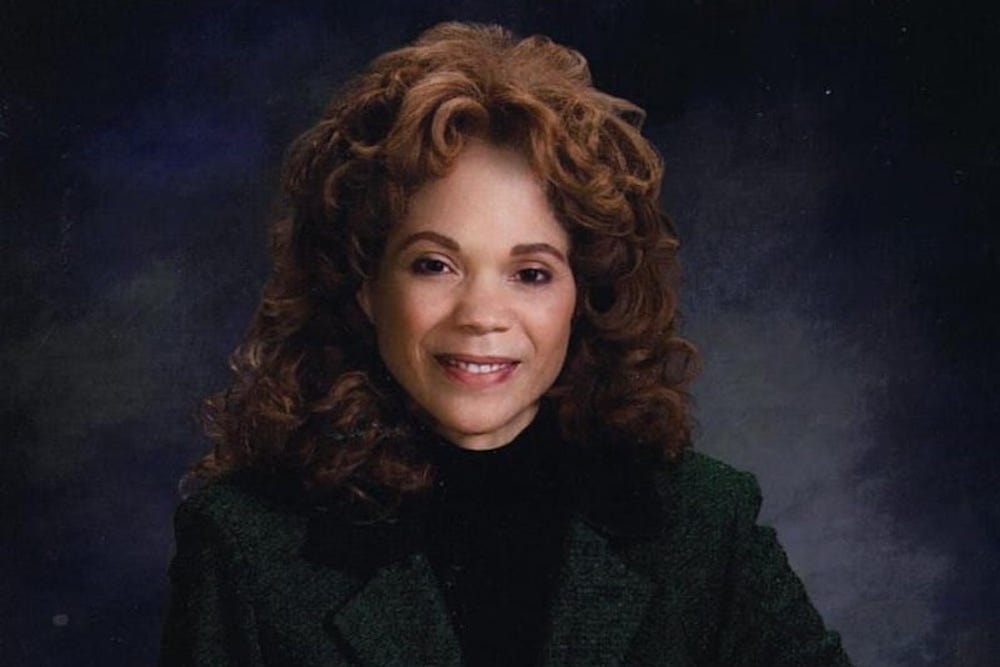
Connie Rice is a civil rights lawyer and a founder of the racial justice organization Advancement Project. The author of Power Concedes Nothing, she previously co-directed the Los Angeles office of the NAACP Legal Defense & Educational Fund and was part of President Obama’s White House Task Force on 21st Century Policing. Before joining “What Are Today’s L.A. Women Fighting For?,” the third panel discussion in the Zócalo/Natural History Museum of Los Angeles County series When Women Vote, Rice spoke in the virtual green room about her favorite step in a lawsuit, why nothing shocks her, and “exercise and THC.”
When are you at your most creative?
When I’m kinetic; when I’m exercising.
Do you have a pet peeve about the Ivy League?
Most of their graduates are greedy and selfish.
As a self-described “nomad” who moved a ton as a military kid, when did you experience the most culture shock?
I’m trying to think if I’ve ever been shocked. When you’re a nomad, that’s not in your repertoire. Every place you go is new and you’re oriented toward exploring the new because you don’t have a choice. And with the power of detachment, you don’t get shocked.
If there’s anything, it’s when I’m around people who speak math. When I went to MIT, I thought it was another planet. But that’s only because I’m mathematically illiterate.
Have you always been comfortable with public speaking, or was that a learned experience?
It came naturally. I didn’t even know it was a competition until I got to Texas and just did extemporaneous speaking in between debate. We won two state debate championships, but I also was very good at extemporaneous—just get up and talk. So [it was] just natural.
How do you decompress?
Exercise and THC.
You have a black belt in Taekwondo. Have you been frequently tempted to put those skills to use?
I’m too old for that. When I was younger, I did put one man in the hospital and another was injured enough to require the emergency room. So it came in handy then. But I think if I did a front kick now, I’d have to go into traction.
Do you have a favorite step in the process of filing a lawsuit?
Yes. Organizing the clients, listening to their stories. Getting revved up to defend people who need help defending themselves.
What failure in your life have you learned the most from?
Failure is not an option in my family.
It’s funny, I was asked one time, “How do you balance life and work?” I said, “I don’t, and I don’t want to try.” I don’t see it as a failure—at some point you just accept your flaws. I’m very lucky that my flaws enhance what I want my life to be about, which is my work. Everybody has flaws, but my failures and my flaws, I see them as advantages. For example, I’m extremely detached, I’m described as cold. I’m asocial is what I am, and that could be seen as a failure, but to me, it’s what I am.
I’m trying to think of a failure… There’ve been a lot of failures along the way, but nothing that I didn’t correct.
If you weren’t a lawyer, what would you be?
If I weren’t a lawyer and I could get skills I don’t have, I’d be an astrophysicist. And couldn’t do it. I’d still be taking the introductory courses 40 years later.
Is there anything that’s surprised you about life during the pandemic?
No. I wasn’t surprised by the militant defiance of the public health orders, and I wasn’t surprised by the shocking inequity, because that’s what lawyers like me do—we litigate about those gaps in health care and access to just the basics to protect yourself. I’m not shocked at the callous difference. This country has gotten more and more selfish, and more and more cruel. Every decade you see more of it. If you can’t turn the culture around in a pandemic, I don’t know when you can. So, let’s keep our fingers crossed that we learned a lesson from this.
What’s inspired you in the last few months?
The doctors, the nurses, home healthcare workers all paid minimum wage and below getting up every day and getting on public transportation and risking their lives to take care of very elderly, poor people. The nursing home situation is just shocking; the prison situation is shocking. But I wasn’t surprised by either of those because basically if you don’t have money in this country, you don’t count. We’re seeing that in spades with this pandemic.
Where do you go to find peace in L.A.?
In my head.



